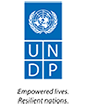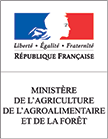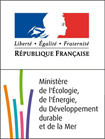The Brazilian government has made a remarkable effort to reduce deforestation. Since 2004, with the implementation of the Action Plan for the Prevention and Control of Deforestation in the Brazilian Amazon (PPCDAm), the country’s deforestation rate has fallen by 83%.
Researcher and Earth Innovation Institute Director Dan Nepstad has dubbed the Amazon Fund “the world’s largest conservation experiment.”
The concept of the Amazon Fund was first presented by Brazil at COP12 in 2006 with the fund formally established in 2008. As a pioneering initiative in the payment for results in REDD+, the Amazon Fund has provided significant resources to combat deforestation and to promote sustainable forest use.
Management of the Amazon Fund was assigned to the Brazilian Development Bank (BNDES), which is responsible for raising and investing funds, monitoring the supported projects, rendering accounts, and communicating results.
Until August 2015, donations to the Amazon Fund totaled $917 million. Since 2009, the Amazon Fund approved financial support for 75 projects, totaling $545 million.
The Amazon Fund supports projects in four categories: sustainable production, monitoring and control, land-use planning and scientific, and technological development.
The practice of the Amazon Fund is to go beyond simple benefit sharing; it contributes to a more appropriate development model for the region, one taking account of social and environmental realities of the local people primarily responsible for forest preservation.
This session will look at the performance and results achieved by the Amazon Fund and by the supported projects underway in the Brazilian Amazon, within the policy framework provided, especially the Brazilian government’s Action Plan for the Prevention and Control of Deforestation in the Brazilian Amazon (PPCDAm).
The session will explore how lessons learned on the ground can be replicated and extended, with local involvement key to sustainability and efficacy.
Another aspect is the question of how to ensure results from supported activities are perceived well by donors and the wider community, in line with public policies, and wherever possible including the territorial perspective.
The Discussion Forum will start with two presentations: one on integration of monitoring and reporting progress, and the other on lessons learned fostering the local participation in project planning and implementation. This is followed by a panel discussion with opportunities for questions.
What three key questions will the panel address?
- How can project, policy, and program monitoring and reporting be integrated?
- How can the participation of local communities in the planning and implementation of projects be ensured?
- Rural settlements, indigenous lands, and protected areas: how can actions in the landscape be articulated?
Background reading
Amazon Fund Annual Report 2014
CIFOR’s Global Comparative Study on REDD+ subnational initiatives




































